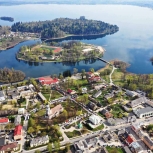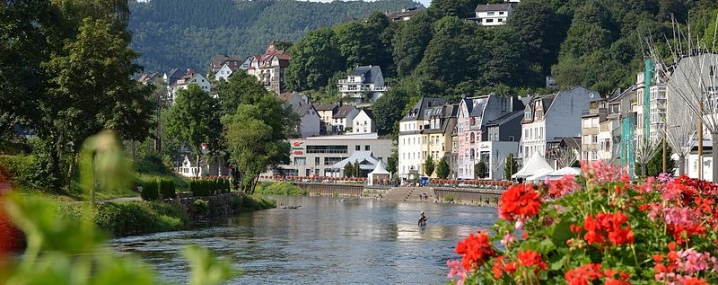
Aluksne
The life on the shore of Lake Alūksne has always been in full swing starting from the ancient Latgalian tribal settlements up to the modern town in the north-east of the European Union nowadays. In the nineteen thirties the Alūksne neighbourhood due to its beautiful hills and valleys, clear lakes and romantic islands was one of the tourism model routes in Latvia. Nowadays this Baltic scale highland with the body and soul refreshing air is ranked among the symbolic landscapes of Latvia.
In history documents the name of Alūksne was mentioned already in about 1284. In 1920 when the population reached 2000 Alūksne was granted city rights. The Alūksne municipality was established in 2009 and its administrative area covers 1764 km2 consisting of the town of Alūksne and 15 parishes. There are 6 primary schools and 10 secondary schools. In addition Alūksne has a number of colleges of further education, music, art and sport.
The registered population in the administrative area was 16 015 in 2018. 83% of the population are Latvian, 12% Russian and the remainder coming from other central European nations. The main industries are agriculture, forestry and timber processing, as well as tourism. There are 160 non-governmental organisations active in Alūksne which are working to achieve public benefit goals.
Economic decline and outmigration of economically active populations result in an over – supply of retail premises in Alūksne. The municipality challenge is making vacant retail premises accessible to start-up entrepreneurs, cultural projects or artisan caterers helps retain and perhaps enhance the attractiveness of the town centre as place to shop, relax and socialise. Being part of the “Re-growCity” URBACT network allows Alūksne being to deal with challenge.


